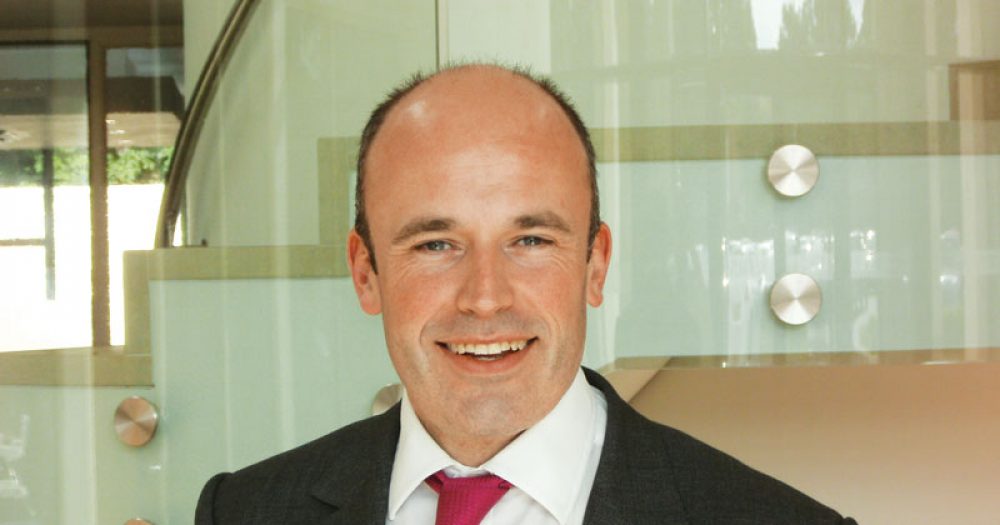The chief executive of England’s biggest academy chain has said he does not believe all schools should have to join multi-academy trusts (MATs), advising strong schools not to rush decisions.
The comments put Sir Jon Coles, chief executive of United Learning and a former Department for Education director-general, at odds with the government’s recent white paper vision for an all-MAT system by 2030.
Speaking during a talk about MAT governance at the Festival of Education, Coles said he was “completely non-ideological about this” when questioned by a standalone academy governor sceptical about MATs.
“I don’t feel like everybody has to join a MAT. I know the government might have a different view.”
He also pointed out that “we’ve got no idea what today’s secretary of state thinks, let alone tomorrow’s“. It follows the appointment yesterday of the third education secretary in just two days.
“So what I would say – if you are a single-academy trust or free-standing school thinking about joining a MAT and you’re not under pressure for any reason, then take your time and think about it. If your vision does not align with a larger trust’s, don’t join.”
He added after the event that failing or struggling schools should “of course” have to join strong trusts to get support. But governors of stronger schools should “look around, find a trust which aligns with your vision and values, and which will retain and develop the things which are important to your school.”
Asked by an audience member how larger trusts can avoid an “us-and-them” mindset among potential new member schools keen to protect autonomy, he said: “I don’t think autonomy is a massive issue in United Learning, fundamentally because we try to be fairly clear about what we stand for, how we’re going to work, what the basic principles of the model are.”
Any change is accompanied by “plenty of consultation”. Local governing bodies are involved in decisions over new heads, with a “process where all voices get heard”.
While chairs of governors can be “really annoying”, he said: “that’s the point – it’s the grit in the oyster”.
The trust also tries to be a “national group of local schools”, respecting their history and geography, rather than a group of “identikit schools”.
UL chief under fire from SAT governor
But he said it was important “everyone in our organisation knows the buck stops” with the trust board, and key decisions and accountability remained with them over decisions like appointing heads.
Tomas Thurogood-Hyde, another panelist and assistant CEO of Astrea Academy Trust, also said the sector “hasn’t always been as candid as it ought to have been” about the nature of joining a trust.
“How I’ve put it to governors is – you currently hold this school in trust, and you’re transferring that to the wider trust.”
One audience member, a standalone academy governor, accused Coles of “platitudes”, saying he had a “huge distrust” of large MATs and questioning their value.
The United Learning chief executive reeled off its central functions from data protection and subject advisers to professional development and “nationally renowned school improvement experts”, adding: “It’s absolutely nothing like what a free-standing school can do on its own.”
Coles recently made clear he supports much of the government’s white paper, saying a single school system was “rational” and it was right to be entirely academy- rather than maintained-school based. He said government was also “right to seek consensus built on evidence”.
Spielman: double-RI academisation plans ‘raise stakes’ of inspection
It came as Ofsted chief inspector Amanda Spielman warned today that a move to force schools with successive ‘requires improvement’ ratings to become academies or join trusts would “raise the stakes” of inspection.
The government recently confirmed its plans to take action on so-called “double-RI” schools. Those still maintained by local authorities will have to academise, while those in existing trusts may be moved.
Ofsted recently warned the new powers were “unnecessary and potentially damaging” for improving schools, and risk encouraging “quick fixes”.
Spielman touched on the issue in her own Festival of Education speech at a separate event today, when she acknowledged that “sometimes the mechanics of improvement can cause friction”.
She said using Ofsted grades to trigger academisation or school transfer was “undoubtedly a simple and transparent way to make these decisions”, but it “inevitably raises the stakes on inspection for schools at risk of a low grade”.
“And the DfE announcement that from September consecutive ‘requires improvement’ grades will be sufficient to trigger the process, will raise the stakes again.”
She said she was “determined that inspection should be as constructive and positive as possible”.
“So we will continue to do all we can to help schools feel confident they understand what inspection is considering.
















Your thoughts